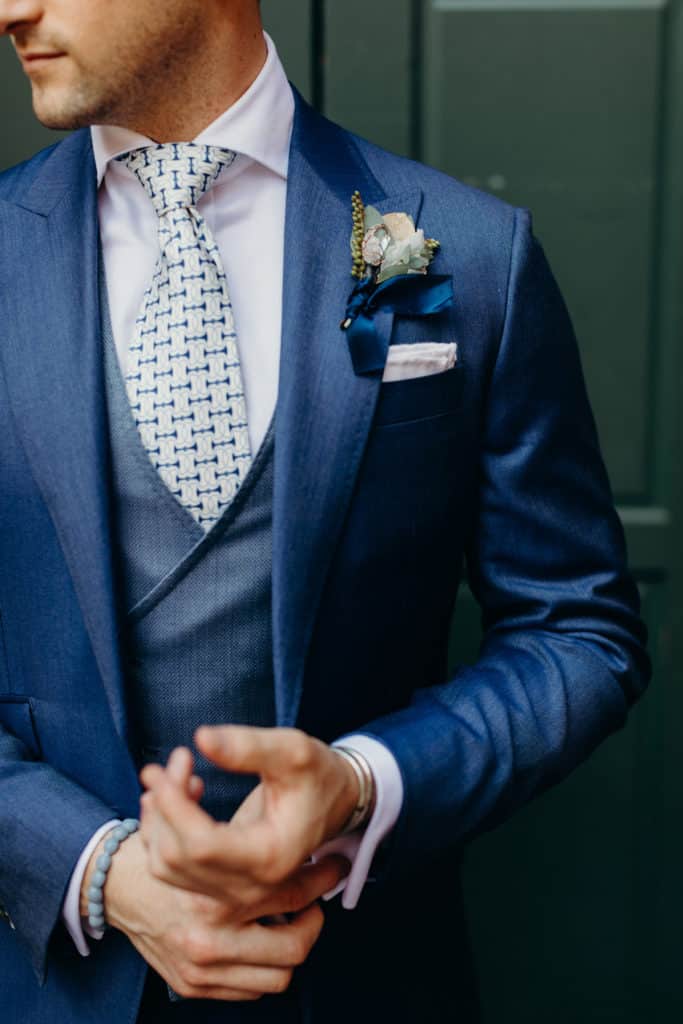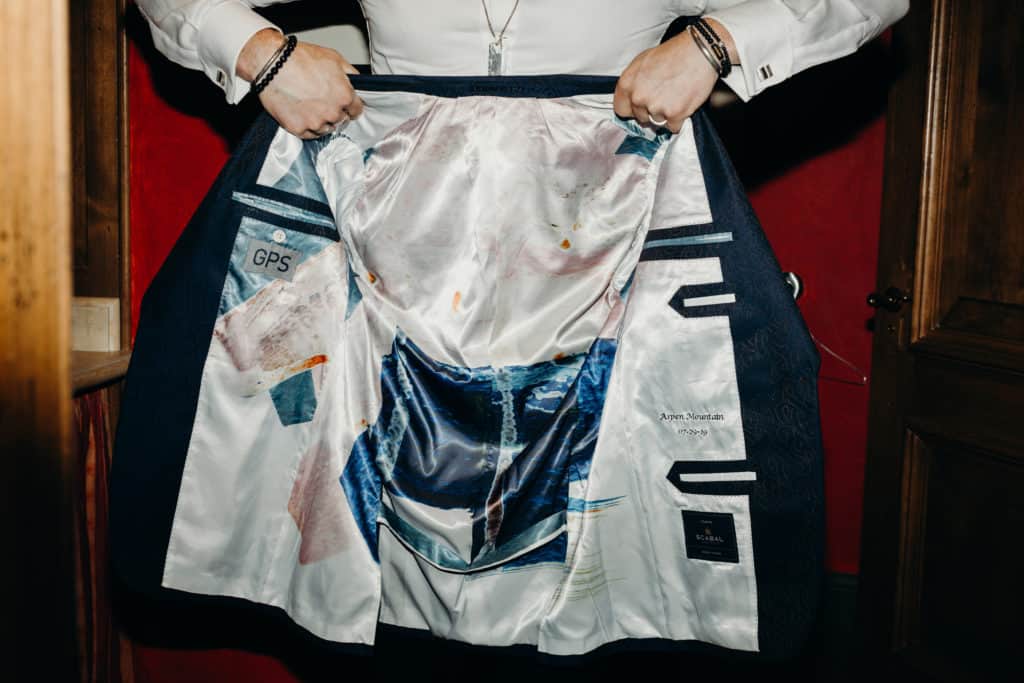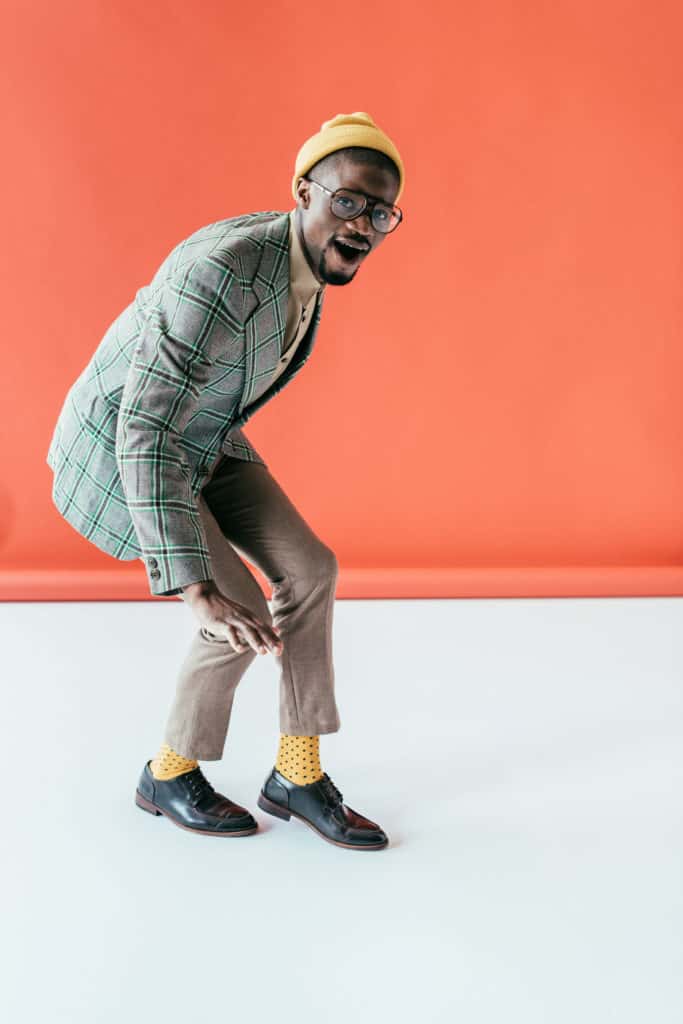
We see the term bespoke everywhere. It’s an Instagram hashtag. It’s used by tailors, brands, and fashionistas.
Bespoke has become a catch phrase that people throw around when they want their look or products to seem high-end. But in clothing, the word refers to a very specific process of making clothing of the highest quality. Most of the time, the term is not being used correctly.
In reality, few tailors and custom clothing shops are truly producing bespoke clothing. It’s a time-intensive and expensive process, but it’s also the best clothing investment you can make.
Custom suit designers or clothiers can talk a big game without delivering. If you’re not accustomed to the quality of a true custom fit, you might not know the difference.
We’re here to tell you what the term really means and how to know who is truly delivering a bespoke product.
With made-to-measure suits, a tailor will start with a standard pattern and make minor adjustments for their customer.
For instance, if someone has a 42-inch chest, a tailor will have them try on their trial 42-inch jacket. If their waist needs to be brought in or if they need the sleeve length changed, those minor adjustments can be made to the default pattern to make their custom jacket.
With bespoke, there is no starting pattern. A bespoke tailor starts with dozens of measurements and designs a paper pattern from scratch. Traditionally, tailors cut the patterns by hand. Nowadays, many tailors use computer programs to create these patterns, which are then laser cut by a computer. But it is still completely unique to that individual, as opposed to a slightly altered template.
True custom clothing is sort of a hybrid. While your measurements are used to create your own pattern, some of the features and options associated with creating your garment are limited. You can control almost all aspects of the design, except for certain details, such as where the pocket sits on you.
If someone tells you you’re getting a bespoke suit, but there’s only one round of measurements and a fitting, it’s not bespoke. You may be getting something hand-made and made-to-measure or custom, but it’s not bespoke.
A true bespoke suit takes weeks and weeks and between five to ten fittings. Because it starts from scratch, everything is built on you.
Adjustments can be made as you go. For instance, with a bespoke suit, you can adjust the width of the pockets and where they sit on you.
When you’re looking for truly custom-made clothing, the first step is to know what they’re selling. Are they advertising made-to-measure, custom, or bespoke clothing? Based on our definitions above, you should have a sense of what that entails and whether they’re actually selling what they say they are.
But there are other signs that they know what they’re doing, and that you’ll get a good product.
Regardless of whether you’re buying made-to-measure or bespoke clothing, there are a number of ways to personalize it. That’s what you’re paying for.
With a custom suit, you can choose the main fabric and the lining, as well as the stitching on the buttonholes, the types of buttons, and lapel style. All of these choices should be discussed based on your preference and lifestyle.

Some of the clients I’ve enjoyed working with the most are ones that have asked me whether I’ve done this particular suit for somebody else. (And, of course, my answer is no). This is an important question. If a clothier is selling you a set of options that they sell to everyone, then it’s much less of a “custom” suit.
While there are certain combinations of fabrics or details that from experience we learn go well together, you should get the sense that the suit is being designed for your needs.
How do you know that they’re designing it for you?
When I’m designing a suit for everyday use, I start by asking questions about the kind of work my client does or what events they normally attend. If they’re in court, what type of law do they practice? For instance, I wouldn’t want to suggest a more glamorous suit jacket to someone who goes and speaks in front of labor unions every day. But, I might suggest more pronounced details if someone who attends a lot of cocktail parties.
Besides just fitting well, a custom suit can be designed with details that resonate with who you are and what you use the suit for.
For instance, when I design a business suit or shirt for someone that types a lot, I’ll reinforce the elbows. I use the same fabric on a shirt so the patches blend in, or on a jacket, I’ll place the fabric on a bias (essentially looking like it was rotated 45 degrees) for a subtle, but functional accent. These make the elbows more durable. It’s these types of details that make your investment worthwhile.
I take about thirty measurements total. Yes, it’s a lot. It’s important that I also ask questions like, “Is that how you normally stand” or “Is that how you normally wear your trousers?” Many guys stand up extra straight in front of the mirror. You need them to stand as they would normally. While taking measurements, I ask clients about their preferred fit in places probably a dozen times.
A fitting should feel very intimate. A tailor needs to know details about your body, like how you stand and carry your weight, in order to design something that fits you well. If a tailor points to fabric, measures you, and that’s the entire appointment, that’s not a great sign. The suit won’t be customized for your body or your lifestyle. Unless you’re a regular client, that is.
If you’re considering a bespoke suit, it’s probably not the first or the last piece of quality clothing you’re ever going to buy.
Ideally, working worth a clothier is a long-term relationship. They should be someone you can return to because you trust the caliber of their work and trust that they know what you want.

This is why I strongly recommend finding a local clothier. Someone who can help you with any necessary alterations, as well as making style decisions for major events.
Like any relationship, it should also be someone you like and can communicate well with. Because, ultimately, when you’re paying for bespoke clothing, you want to make sure you’re getting what you want. This isn’t just about whether it’s truly bespoke, but also about being on the same page as the person making it.
Learn more about our custom and bespoke clothing and styling services.
